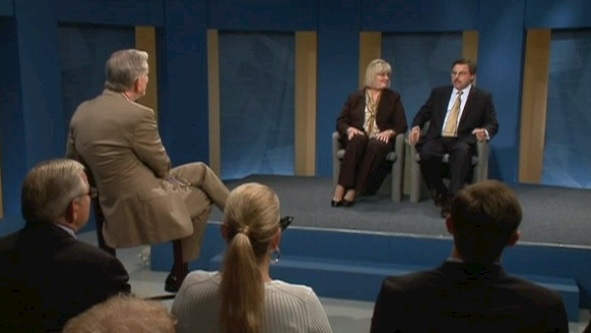Only 2% of Americans have an adequate pension or retirement account. Yet while the picture appears to be doom and gloom our experts offer sound advice- it’s not too late to turn the picture around to be able to retire with dignity.
Joining host, Dennis McCuistion, are guests:
-
- Alan Goldfarb, CFP, AIF, MBA – Managing Director: FSG Advisors
- Brooks Hamilton – Attorney, Founder: Brooks Hamilton and Partners
Inflation, lack of savings and investments and the last several years’ economy has changed the economic landscape for many Americans; making it almost impossible for many to retire. 95% of Americans may well run out of money in their retirement. The American dream of retiring with dignity is gone.
Compounding the problem is increased life expectancy, which has gone from 47 years of age in 1900 to 77 years; a gain of 30 years in less than 100 years. In 1900 retirees in the US comprised less than 5% of the population and lived only a few years past retirement. Today retirees are 1/3 of the population and live for decades past retirement.
With inadequate investment returns, some 401ks actually showing a negative return (when adjusted for inflation), and pensions, social security and savings on shaky ground, how will retirees maintain their lifestyle and pay their bills? In 1970 Americans saved 10% of their pay. Today they average 1-2% savings. Why did worker savings nose dive? Today: 29% of Americans have savings of less than $1000.55% of Americans did not save 1 cent last year.34% of adults say they have no money saved for retirement.Americans have $772 billion in credit card balances.Last year more Americans filed for bankruptcy than graduated from college.Last year more Americans filed for bankruptcy than filed for divorce.42% of Americans live paycheck to paycheck.55% spend more than their annual income.33% of retired Americans rely almost solely on social security payments. Tune in to learn more about American retirement.
Talking about things that matter… with people who care.
Niki N. McCuistion
Executive Producer/Producer
Organizational Culture, Governance and Strategic Planning,Consultant and Problem Solver
(214) 394-6794
nikin@nikimccuistion.com
Be sure to watch more McCuistion TV programs on our website www.McCuistionTV.com.









